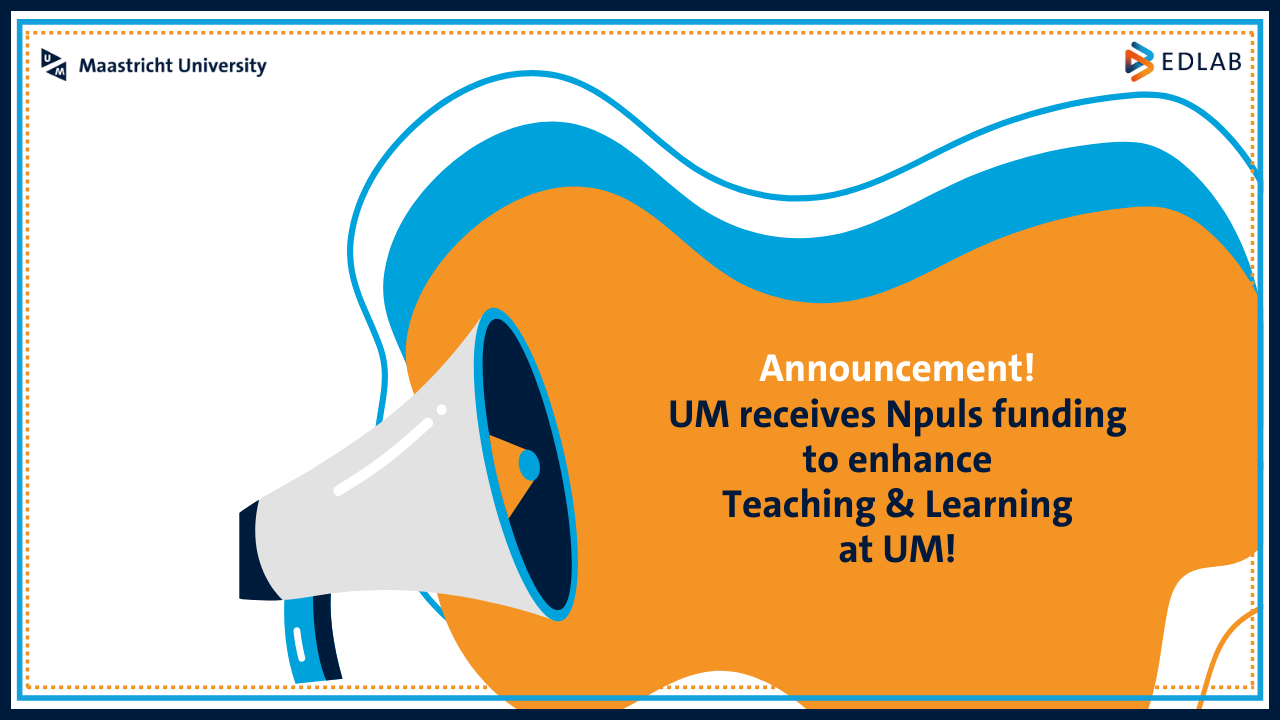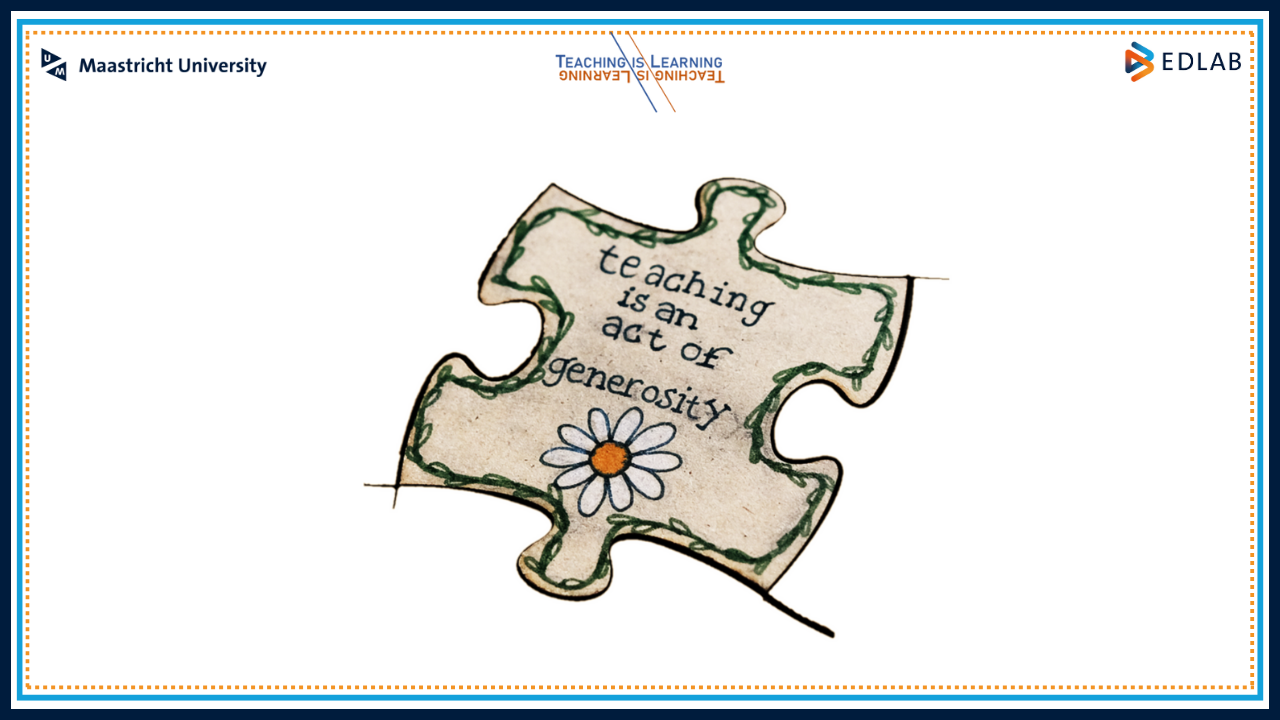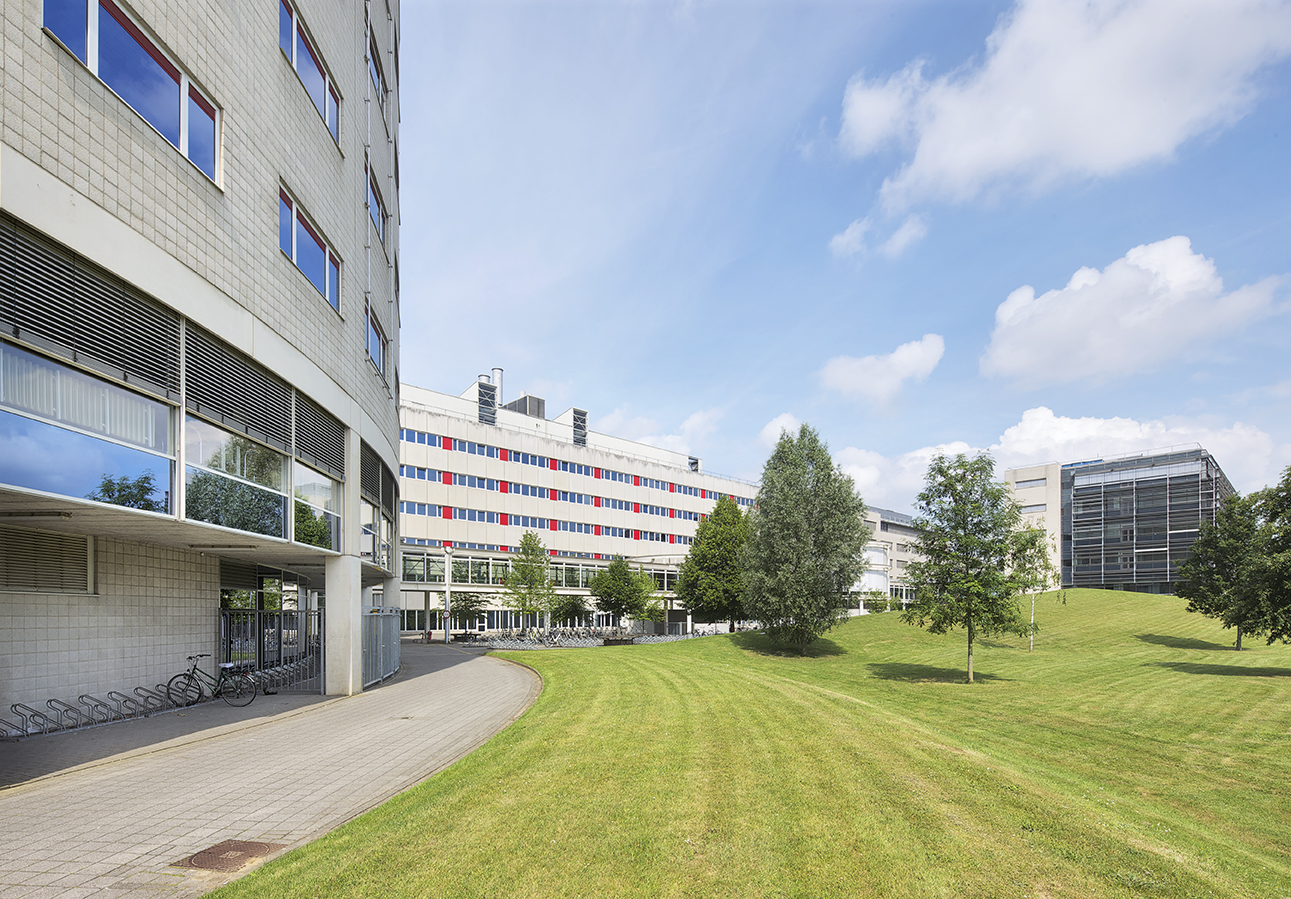News
-
We are delighted to announce that EDLAB – Maastricht University Centre for Teaching & Learning has been granted a Npuls-CTL subsidy totalling nearly €500,000 for the period 1 September 2024 to 1 September 2027.
-
To mark the International Day of Education, Maastricht University proudly presents the new interactive video from EDLAB, the core of UM’s teaching and learning community.
-
We are delighted to share the highlights of UM Education Days 2023 through our dedicated recap page, including a beautiful video impression of the event. Mark the dates for the next edition: 12 and 13 June 2024!
-
Professor Machteld Marcelis can continue her work at Maastricht University, the university’s Executive Board has determined. An independent inquiry commissioned by the board and conducted by the agency BING found no evidence of an unsafe social environment within the Psychiatry section of the UM...
-
Maastricht University's Executive Board has approved the plan to renew the animal research facility for UM and Maastricht UMC+ at the existing location at Universiteitssingel 50 (UNS50). A new building is therefore off the table.
-
For the first time, there is scientific evidence that a personalised diet based on a person's metabolic profile leads to better health. This is an important step towards more effective nutritional interventions aimed at improving health and preventing chronic diseases.
-
What happens if a SARS-CoV-2 coronavirus enters your lung? This molecular animation visualises how the virus particle can take over the host cell and turns it into a virus factory. Eventually, the host cell produces so many viral particles that it dies and releases numerous new virus particles.
-
Thanks to a strong financial impulse from the National Growth Fund, Maastricht University, as one of the partners in a national consortium, is starting a new line of research in the field of cellular agriculture.
-
An organ that disappears almost completely after puberty, but in rare cases can regrow in size and even harbor a tumor: the thymus, also known as the thymus. Physician-researcher Florit Marcuse, affiliated with Maastricht University's Faculty of Health Medicine and Life Sciences, examined this...
-
Our liver is a special organ: if you cut away part of it, in most cases a new piece of liver will grow back. If someone has cancer in the liver, the affected part of the liver can be surgically removed. But you can only do this if at least 30% of the liver remains. For many patients whose remaining...







